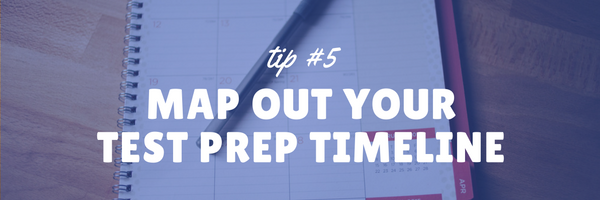Get the latest news and updates in test prep delivered straight to your inbox every Tuesday. Subscribe to ArborBridge’s Weekly News Flash!
The upcoming break is the perfect time to get ahead. But where should you start? We’re here to provide students with our top five tips to tackle test prep during winter break.

Tip #1: Take a diagnostic SAT and/or ACT.
We cannot stress enough how important this step is. Taking a diagnostic SAT or ACT (or both) is the best way to gauge which test, is best for your individual strengths.
Did you know the SAT has actually moved more closely in line with the ACT since the redesign? This is just one of the factors to consider when determining which test is better for you as a student. The good news is that taking a diagnostic is one of the most effective ways to determine not only the test you should prepare for, but also where you are starting off your prep. There’s no downside to a diagnostic SAT/ACT!
ArborBridge offers free diagnostic SAT and ACT exams for students. Request yours today and find out which test is best for you!
Click Here to Speak with an Advisor and Schedule Your Practice Test

Tip #2: Stay updated on the latest news and announcements in test prep.
These days it seems like there is a new development in test prep every other week. It’s hard to keep up with every single headline in the news, but there’s no excuse not to be aware of the bigger updates from the College Board and ACT when you’re holding a smartphone in your hand! Plus, staying updated only serves to benefit you in your journey through college admissions—even things like cheating scandals can directly affect you (e.g. an upcoming test date in your area may be cancelled due to a test leak).
Luckily, ArborBridge has a solution for you!
Subscribe to our Weekly News Flash and get the latest news and updates in test prep, college admissions, and more delivered straight to your inbox every Tuesday.

Tip #3: Master those critical reading skills—you’re going to need them.
Considering the importance of reading comprehension in virtually every academic subject, in addition to a section on both the ACT and SAT devoted entirely to testing a student’s reading comprehension ability, it’s imperative that students begin familiarizing themselves with text other than those assigned in class.
Furthermore, SAT Math has boasted more words in word problems than ever, and that’s in addition to the Global Conversation Passages in Reading (a new feature on the SAT this past year) which requires students to read a long historical passage and then answer questions about the text. And remember, the ACT includes a Science section which is really more of a test of critical reading and logical thinking.
Our suggestion: Avoid the shock of these types of passages by adjusting your reading agenda to include more lengthy texts. We suggest spending 2 or more hours per week reading articles from well-established publications such as the New York Times or literary magazines like The Atlantic. You can even try exploring new texts in your local library or downloading a free eBook on a unique topic.

Tip #4: Organize all documentation and other important information if you might require testing accommodations.
Just in the last few months, some major changes to the testing accommodations process have been made on both the SAT and ACT. No matter when you are planning to take the official test, get started on requesting accommodations as soon as possible.
First and foremost, gather any evidence of a professionally diagnosed disability, as well as further documentation that the disability impacts a student’s daily functioning and ability to take standardized tests (preferably an Individualized Education Program, or IEP). Our general recommendation is to work with your school counselor to ensure you are equipped with everything you need to tackle the official exam at the best time for you. It can take up to 4-7 weeks for the College Board or ACT to approve (or deny) a student’s request for accommodations on the exam, so make sure you give yourself enough time to collect the necessary information, submit the request, and wait for an official approval from each respective test. That’s why winter break is the perfect time to get started if you hope to sit for an official exam this spring/early summer!
Have questions about requesting accommodations on the SAT or the ACT? Don’t hesitate to reach out to an ArborBridge test prep expert—we’d love to chat!

Tip #5: Map out your test prep timeline and figure out when you will sit for an official SAT or ACT.
As if we haven’t said it enough, use this break to your advantage and at the very least plan out your test prep strategy for the upcoming semester (and beyond). All this takes is simply sitting down one day and mapping out when you will be able to sit for an official exam (make sure to look up official test dates on the College Board site and ACT site), how long you will need to prep, and when you should take a diagnostic exam to get the ball rolling.
To help you out, we put together test prep timelines for domestic and international students which outline our general recommendation for how many times students (typically juniors) should sit for an official exam and when.
If you aren’t sure where to begin or what your best timeline might be, contact an advisor at ArborBridge! We’ll help you get on your way.

